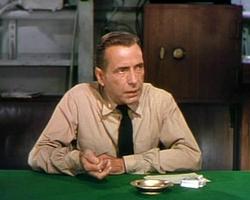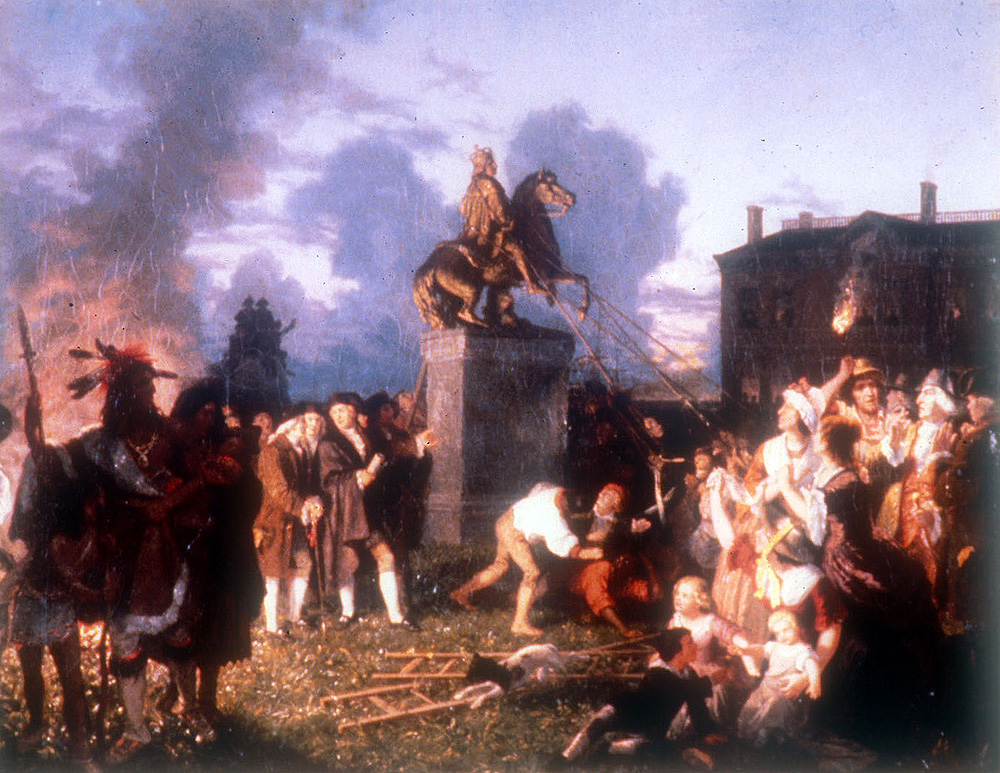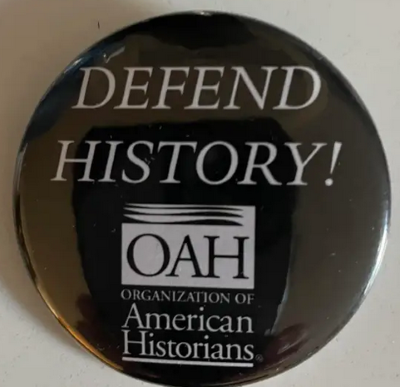
Columbus Day is in the news again. Given that it is months away, its appearance may seem surprising. However, in the ongoing culture wars, the battle continues throughout the year. The reason for the recent appearance of Columbus Day is due to its defeat in three states.
According to a blog headline dated April 3, 2019, New Mexico just became the latest state to ditch Columbus Day for Indigenous Peoples’ Day.
As of this year, New Mexicans will celebrate Indigenous Peoples’ Day instead of Columbus Day, a move that proponents say better reflects the state’s culture. According to 2017 U.S. census data, more than 12 percent of the state’s population is indigenous.
This report was followed on April 22, 2019, with an article entitled Two more states are dumping Christopher Columbus to celebrate indigenous people instead.
Vermont and Maine are the latest to join the growing number of cities, states and municipalities that have renamed the October holiday for the people who lived in America long before the explorer arrived.
Notice the choice of words in the two headlines: Columbus Day is ditched and dumped.
Rep. Debbie Ingram, who introduced the bill in Vermont said it is a “step to right, or at least acknowledge, the many wrongs perpetrated on our Native American brothers & sisters.”
“Vermont was founded and built upon lands whose original inhabitants were the Abenaki people and honors them and their ancestors,” Vermont’s bill says. “The establishment of this holiday will aid in the cultural development of Vermont’s recognized tribes, while enabling all indigenous peoples in Vermont and elsewhere to move forward and formulate positive outcomes, from the history of colonization.”
Note that these Native Americans actually have a proper noun name: Abenaki.
The story in New Mexico was similar.
New Mexico Gov. Michelle Lujan Grisham signed a bill which replaced Columbus Day with Indigenous People’s Day, saying she was “proud” to make the change.
“This new holiday will mark a celebration of New Mexico’s 23 sovereign indigenous nations and the essential place of honor native citizens hold in the fabric of our great state,” she said. “Enacting Indigenous People’s Day sends an important message of reconciliation and will serve as a reminder of our state’s proud native history.”
The odds are that these 23 sovereign indigenous nations actually have proper noun names as well.
Turning momentarily from Columbus’s day to his statues, newly hat-thrown into-the ring presidential candidate Mayor de Blasio said this when statues in New York City became a hot topic:
“We’re trying to unpack 400 years of American history here,” de Blasio told reporters at an unrelated press conference. “This is complicated stuff. But you know, it’s a lot better to be talking about it and trying to work through it than ignoring it.” (“De Blasio, pols clash over historical statues symbolizing hate in NYC” Erin Durkin NEW YORK DAILY NEWS, August 22, 2017)
Sometimes the language can become a little heated to say the least. Consider the following article while the subject of the statue of Columbus in New York was being debated.
Treat Columbus like Weinstein: Topple him
(Michael Henry Adams, NEW YORK DAILY NEWS, December 15, 2017)
Isn’t it ironic that even as bad men like Harvey Weinstein get their names taken off productions, even as Alabamians repudiate Roy Moore, people in New York City — our bastion of liberalism — are refusing to reckon honestly with the terrible deeds of people who’ve been dead for hundreds of years?
Message for Mayor de Blasio’s statues commission, whose final report is due any day now: If we are willing to make pariahs out of people like Matt Lauer and Kevin Spacey, we must not continue to enshrine Christopher Columbus and others who offend our core values.
After allegedly discovering America, Columbus was, for a long time, widely respected — as widely respected as, say, Charlie Rose.
A reawakening followed the widespread recognition that he ruthlessly enslaved indigenous Tainos initially praised for their generosity and gentleness.
Note that here too the indigenous people have an actual proper noun name.
The blog on the New Mexico ditching of Columbus Day was not a simple article of reporting. It mocked Columbus as well.
What is the point of Columbus Day again? Anyone?
Let’s go over brief reacap [sic] of why Americans have spent decades celebrating Christopher Columbus every October:
In 1492, Columbus sailed the ocean blue in search of a Western route to Asia. Instead, he ran into the islands of the Caribbean, but declared that he had, in fact, found the land he was looking for. He said Cuba was China. He thought that Hispaniola was Japan. He maintained these erroneous claims for two entire trips back and forth from Europe.
While he was at it, he also pillaged and tortured the native population of the islands, forced them into slavery, offered them the gift of infectious diseases, and claimed their lands for Spain.
But hey, we need an October holiday. And Columbus was a pretty good sailor, so surely he deserves a national holiday in a country that isn’t even physically part of the land he “discovered,” right?
Come on now.
In the eagerness to mock Columbus, the blogger has failed to address the issue of why Columbus became a revered figure in the first place. It is safe to say that it was not because of any of things mentioned in the blog. Presumably there must have other reasons to explain how this individual, sometimes in the masculine form and sometimes in the feminine form “Columbia” became a symbol of the country, the capital city of the country, the name of cities, and the name of the renamed Kings College that Alexander Hamilton had attended. True this was a blog and not a serious op-ed piece yet alone an historical essay or journal article, but the flippant superficiality expressed in it complicates the challenge of dealing intelligently with a legitimately serious issue.
The blogger was not done with the vituperation.
Seriously, though. Isn’t it time to make this change national?
I can’t think of one good reason why we don’t change the federal holiday of Columbus Day to Indigenous Peoples’ Day. I know some people have a hard time letting go of tradition, but it’s not like this holiday has been around since our founding. It became a holiday in 1937. It’s not sacrosanct.
And it’s long past time for our country to start atoning for some of what the native people endured at the hands of our government. A holiday acknowledging the contributions of indigenous people and recognizing what they’ve been through would at least by a symbolic gesture of goodwill, especially if it replaces a holiday honoring someone who caused great pain and suffering to native people.
It would be great to see the whole country follow New Mexico in putting the Columbus Day holiday into the historical vault in which it belongs and honor indigenous people instead. It really is the least we can do.
A close reading of text exposes certain shortcomings in the reporting.
Why did it become a holiday in 1937? It’s not as if Americans suddenly discovered Columbus then.
Why the use of the word “atone”? Why bring a religious dimension to the discussion? Who are the people who are to atone? And who are you to tell those people they need to atone?
The debate over Columbus Day provides an opportunity to discuss a number of serious issues. In practice no such discussion will occur but I intend to write some blogs addressing the issues anyway
1. The use or lack of use of proper names for American Indians.
2. The use and abuse of the terms “native” and “indigenous.”
3. The meaning of Columbus to America in general and Italian-Americans in particular
4. The need of some Americans to call upon other Americans to atone their sins
and then to make some suggestions about what should be done.






I am so sick and tired of the revisionist history going on. It will always be Columbus Day for me. Enough already with the PC movement
“Columbus did not discover America in 1492; it was already there.”
“If you insist. Then Priestley did not discover oxygen in 1774; it was already there.”
When we sit down to a table to eat we are benefiting from the Native culture and skill at cultivating a lot of the foods that feed the world today. And recently it is being revealed that the old heirloom varieties from Native heritage that have been sided in favor of mass production are richer in nutrients that keep us well. Even this is not taught and spoken of. The food history story alone is enormous. The wealth of these continents was not ours to start with. We cling to myths about this individual who has almost no direct record of his deeds let alone his exact lineage and existence. Trying to cite lost records or secondhand accounts does not equal an extinct race of people who we know were original inhabitants of the islands. Columbus, his actual real name? Was he as some have speculated a convert? Woah! “Now there’s a pretty howdy do”!
The time for the truth and teaching it has come. All Relative.
My choice would be Indigenous People’s Day for many reasons.
You are welcome to provide a few especially after my next blogs.
My approach to the Columbus Day controversy is historical and may be helpful. If you agree please send it around to the interested parties. In longerhistorically based version it is in the form of a two blogs accessible at richardmurphy5.wordpress.com
Blog 103 “Goodbye Columbus and Columbus Day (In four parts) and Blog 190 “Goodbye Columbus Again.”
Here it is in brief. The indigenous people no less than the Europeans were wracked with serious deficiencies: They practiced that bane of women equality, polygamy, gave the world tobacco the killer of millions, practiced slavery and human sacrifice and made almost constant war. Indeed the Aztecs so terrorized Middle America and the Caribs the Caribbean that when the Europeans came they had no shortage of allies from among the indigenous people. Because no group is free of often terrible imperfections perhaps no one group should be honored with a day and instead all recognized for their contributions to the American people. What I propose is “American Peoples Day” Sincerely, Dick Murphy
PS. Please contact whomever you will with the idea.
Thank you for you comment. I will be writing about indigenous people in the third blog of this series. One point to make is that the indigenous are three-dimensional people too, something that is often overlooked. My recommendation on where do we go from here may be a little different from your “America’s People Day.” I won’t get around to it until the final blog of the series.Let me know what you think then.
Excellent article, thank you
Renee Moore
Founding Director
Solomon Northup Day(c)
based on 1853 autobiography, Twelve Years A Slave
http://www.solomonnorthupday.org
Peter
Another great one – which I plugged on one of my FB sites. I wish you were on FB because it would extend your reach.
May get no where but I’ve been nudging the Knights of Columbus Museum in New Haven (a big, rich institution) to take this whole thing seriously – at least start by convening a few folks to sit in conversation with them about what may be done.
I loathe presentism and also loathe the political divisiveness of these times.
We’re just back from TX where I had an opportunity to see and experience this issue re. Confederate monuments up close and personal.
IF K of C responds – I’d love to involve you – would expect them to pay folks to attend a discussion – as they are well able to do.
cheers
Bill Hosley
Thanks Bill. I had forgotten about the Knights of Columbus and will mention them in the next blog. You may want to send them that blog.
Peter
When I lived in Wisconsin and Minnesota, they just didn’t celebrate the holiday at all (other than federal buildings being closed). This is an easy solution, but I must admit that I did miss having a day off during the most beautiful month of the year.
Excellent as always, Dr. F. For those interested can I recommend Carol Delaney’s Columbus and the Quest for Jerusalem– it is the most balanced book on him and his deeds/misdeeds… one of the best I have ever read and I mailed it to the author to autograph. Definitely a must read. Additionally, I also recommend the out of print Columbus: The and Now by Miles Davidson. It’s a historiography on Columbus literature and is actually very impressive. The other books out there in print have their own pluses and minuses which I’m happy to address to those interested.
Thank you for your objective analysis on the blog. I take it you have just gotten around to the first in the series. You may be interested in the second which examines the place of Columbus and Columbia in American history. My focus is less on what historical Columbus did than on his impact in how we tell our story as Americans.